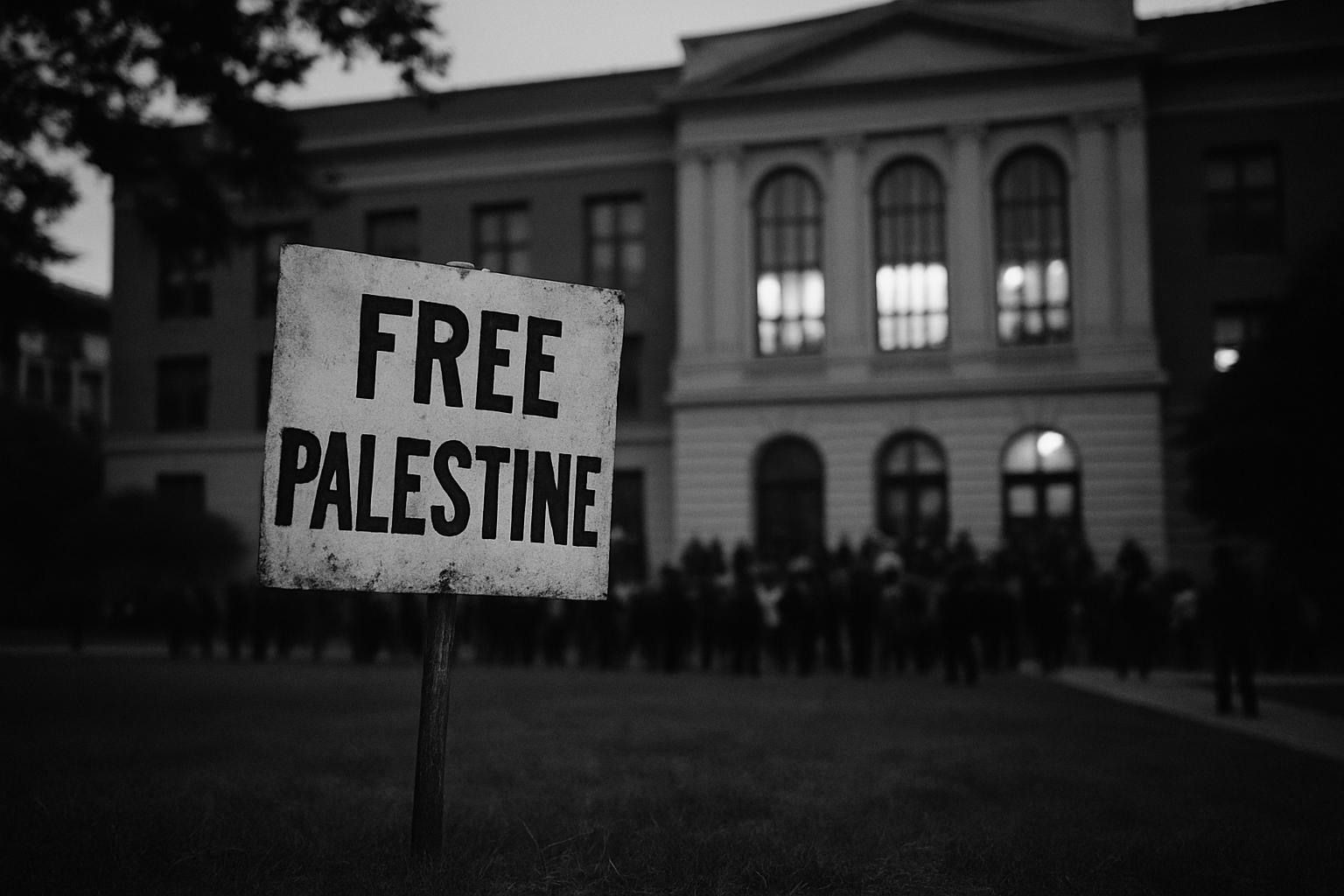Universities in England face the prospect of sanctions if pro-Palestinian protests escalate into harassment or discrimination against Jewish students, according to the director of free speech at the Office for Students (OfS). Arif Ahmed emphasised that freedom of speech does not extend to intimidation or antisemitic harassment, signalling a firm stance from the higher education regulator amidst rising campus tensions.
Ahmed highlighted concerns about antisemitism following a wave of pro-Palestinian demonstrations held on the second anniversary of the Hamas attack on Israel. Despite calls from Prime Minister Sir Keir Starmer urging students to refrain from protesting on this sensitive date, citing rising antisemitism, rallies proceeded at several universities including in London, Edinburgh, Belfast, and Sheffield. The Prime Minister condemned some protests as disrespectful and accused certain participants of using the events as a pretext to attack British Jews. This surge in activism came shortly after a terrorist attack on a Manchester synagogue, which prompted increased security measures at Jewish places of worship nationwide.
The OfS holds significant regulatory powers, capable of imposing fines, withdrawing public funding, or even revoking degree-awarding authority if universities fail to protect students from harassment. Ahmed stated that universities must act against unlawful support for proscribed organisations on campus, adding that such activities fall outside the protections of free speech. Earlier this year, the University of Sussex was fined over £585,000 for its policies that the OfS deemed could suppress opposing views, reflecting the regulator’s willingness to intervene decisively when free speech boundaries are perceived to be crossed.
Further intensifying scrutiny, education ministers have urged university leaders to swiftly address threats to student safety, following reports of student societies expressing support for Hamas, a designated terrorist organisation. Ministers expressed particular concern over the chilling effect such affiliations have had on Jewish students, some of whom reportedly feel compelled to conceal their identities.
In parallel, investigations reveal a deeper level of institutional monitoring and response to pro-Palestinian activism across UK universities. Emails obtained by Liberty Investigates disclosed that multiple universities—including Loughborough, Heriot-Watt, and Glasgow—have coordinated with police and private intelligence bodies to observe students' social media and chat groups amid fears of unrest. More than 40 universities have directly communicated with law enforcement regarding protest activity, and at least 28 institutions launched disciplinary investigations affecting over 100 students and staff linked to pro-Palestinian demonstrations. These developments raise critical questions about the balance between ensuring campus security and safeguarding academic freedom and free speech.
Meanwhile, the National Union of Students (NUS) has come under fire from student activists accusing it of institutional bias and Islamophobia due to its perceived silence on the Gaza conflict. The NUS's endorsement of the International Holocaust Remembrance Alliance (IHRA) definition of antisemitism, which critics argue conflates legitimate criticism of Israel with antisemitism, has sparked debate about the union’s position on Palestine. Activists contend that the NUS’s lack of vocal support for Palestinian issues contravenes its foundational principles, prompting calls for the organisation to adopt a clearer and more balanced stance.
Overall, the situation across UK campuses is highly charged, with universities caught between upholding free speech, combating antisemitism, and managing sensitive political activism. Regulatory bodies and government officials appear prepared to enforce strict measures where student welfare and safety are compromised, while the broader debate over academic freedom and political expression continues to unfold.
📌 Reference Map:
- Paragraph 1 – [1], [4]
- Paragraph 2 – [1], [2], [5]
- Paragraph 3 – [1], [3], [4], [6]
- Paragraph 4 – [2], [3], [4]
- Paragraph 5 – [5], [7]
- Paragraph 6 – [1], [3], [4], [6], [7]
Source: Noah Wire Services
